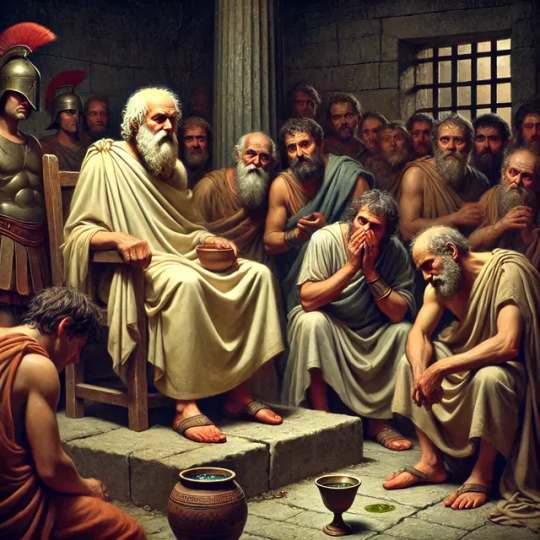#intellectualfreedom
Explore tagged Tumblr posts
Text
youtube
Blind obedience comes at a cost—personally, professionally, and on a societal level. When people stop thinking for themselves, creativity dies, innovation slows, and leadership turns into an exhausting struggle. Worse, those in charge waste valuable time managing followers who should be thinking and acting independently. This video exposes the hidden dangers of blind obedience, how it drains resources, and why real leadership empowers people instead of keeping them dependent. If you've ever felt like you're surrounded by people who refuse to think critically, this is the video you need to see. 🔹 Why blind obedience is dangerous 🔹 How it wastes time and energy 🔹 Why systems built on dependency are doomed to fail 🔹 The real power of independent thought and true leadership Don't get stuck in a cycle of dependency—watch now and break free!
#BlindObedience#ForcedStupidity#WastedPotential#CriticalThinking#LeadershipFailure#IndependentThinking#StopFollowingBlindly#ThinkForYourself#MindlessCompliance#ObedienceTrap#BreakFreeFromControl#LeadershipMindset#PersonalPower#IntellectualFreedom#BrainwashingTactics#SystemFailure#Micromanagement#EnforcedIgnorance#MentalSlavery#StopTheCycle:#Youtube
0 notes
Text
The most dangerous man to any government is the man who is able to think things out for himself.
— H.L. Mencken
#HLMencken#DangerousMan#IndependentThinker#QuestionAuthority#CriticalThinking#FreeThought#IntellectualFreedom#ChallengePower#ThinkForYourself#AutonomousMind#RebelMindset#GovernmentCritic#IndependentMind#IntellectualRebellion#PowerOfThought#SelfThinker#CourageToQuestion#UnafraidToThink#MindLiberation#IntellectualCourage#BreakTheChains#FreeYourMind#ThinkIndependently#MentalFreedom#ChallengeTheSystem#RebelAgainstControl#IntellectualIndependence#MindRevolution#CourageToDissent#UnafraidToQuestion
0 notes
Text
The Trial of Socrates
The Trial of Socrates is one of the most famous legal cases in ancient history. Socrates, a classical Greek philosopher, was put on trial in 399 BCE in Athens. He was charged with two main offenses:
Corrupting the youth of Athens: Socrates was accused of leading the younger generation astray by encouraging them to question established norms and authority, particularly the Athenian democracy.
Impiety (asebeia): He was also charged with disrespecting the gods of the city and introducing new deities. This accusation arose from his criticism of traditional religious beliefs and his promotion of more abstract philosophical ideas about divinity, including the concept of a singular, higher moral being or force.
The Context:
Athens had recently undergone political upheaval, including the fall of the Thirty Tyrants, a pro-Spartan oligarchy that briefly ruled the city before democracy was restored. Some of Socrates' followers, like Critias and Alcibiades, had connections to this oligarchic regime. This made him a controversial figure, even though he himself avoided political involvement.
The Trial:
The trial was held in front of 501 jurors, a large jury by modern standards. Socrates defended himself, but his defense was more of a philosophical discourse than an attempt to win the favor of the jury. He argued that he had done nothing wrong, suggesting that his mission of questioning others and seeking wisdom was a service to the city, not a crime. He even referred to himself as a "gadfly," a figure meant to stimulate the city to self-examination.
Rather than appeal to the jurors' emotions, Socrates remained defiant, claiming he had a divine duty to seek and speak the truth. His unwillingness to pander to the court likely contributed to his conviction.
The Death Sentence:
Socrates was found guilty by a narrow margin. After the guilty verdict, there was a second phase of the trial to determine his punishment. He sarcastically proposed that he should be rewarded with free meals for life, as a benefactor of the city. When pressed for a serious proposal, he suggested a small fine, which the jury found insufficient.
The jury ultimately sentenced him to death by drinking hemlock, a poison that induces paralysis and death. Despite offers from his friends to help him escape, Socrates accepted his fate, choosing to abide by the law even though he believed it to be unjust. His calm acceptance of death is famously depicted in Plato's Phaedo, where he engages in philosophical discussion with his friends until the moment of his death.

Socrates' trial and execution are often seen as a pivotal moment in Western philosophy, marking the conflict between free thought and democratic governance. His death also serves as a symbol of the risks involved in challenging societal norms and authority.
#today on tumblr#new blog#Socrates#TrialOfSocrates#Philosophy#AncientGreece#GreekPhilosophy#Plato#SocraticMethod#AthenianDemocracy#CorruptionOfYouth#Impiety#MoralIntegrity#SocialContract#Hemlock#PhilosophicalMartyr#WesternPhilosophy#Ethics#IntellectualFreedom#Justice#HistoricalTrials#PhilosophicalLegacy
1 note
·
View note
Text
Harvard Diversity Debate: Is Fairness for All Possible? #affirmativeactioncontroversy #diversityinitiativesinhighereducation #freespeechoncollegecampuses #HarvardUniversityDEIpolicies #intellectualfreedom #promotingdiversityandinclusivity
#Business#affirmativeactioncontroversy#diversityinitiativesinhighereducation#freespeechoncollegecampuses#HarvardUniversityDEIpolicies#intellectualfreedom#promotingdiversityandinclusivity
0 notes
Text
Explore the Awoke Culture Revolution and understand the shift from social awareness to extremism in woke culture.
Discover how our "Too Awake To Be Woke" collection embodies the spirit of intellectual freedom and true enlightenment. 🌟
Join us in standing against cancel culture and promoting diversity of thought.
#AwokeCulture #WokeCulture #CancelCulture #IntellectualFreedom #TooAwakeToBeWoke #BendTheTrend Like, Share, Follow! Read Blog Here: https://go.bendthetrend.shop/awoke (🌐)
youtube
0 notes
Text

censorship, mу art, 297×420 , pencil drawing, 2024
intense pressure and fear of censorship faced by writers. It explores themes of creativity under duress, the threat of suppression, and the struggle for intellectual freedom.
#pencildrawing#pencilart#artworks#instaart#artgalley#drawings#artragneidr#derwent#derwentpencils#yuliyakravets#ragneidrart#ArtOfContemplation #Writer #Deadline #Executioner #Censorship #BannedBooks #Creativity #Pressure #IntellectualFreedom #ArtisticExpression #Fear #Suppression #Literature #Symbolism
1 note
·
View note
Photo

For day two of #bannedbooksweek here is a collage I made of 100 books that have been frequently challenged and banned over time or have notable recent challenges. According to the American Library Association, there were 681 attempts to ban books in 2021. In 2020, that number was around 200. Do you notice any pattens amongst these? Do any of the books featured here surprise you? How many of these have you read? I’ve half almost half. #bannedbooks #ireadbannedbooks #readbannedbooks #fightbookbans #freetoread #intellectualfreedom #americanlibraryassociation #bookstagram #booktok #bookstagrammer #booktoker https://www.instagram.com/p/CisZYOirL6q/?igshid=NGJjMDIxMWI=
#bannedbooksweek#bannedbooks#ireadbannedbooks#readbannedbooks#fightbookbans#freetoread#intellectualfreedom#americanlibraryassociation#bookstagram#booktok#bookstagrammer#booktoker
4 notes
·
View notes
Photo

"100 Scariest THINGS on the Planet" doesn't include esoteric concepts, like censorship & it's kin, but these others, classics all, may yet give a chill. Sep 18-24 celebrates #IntellectualFreedom & #FreedomToRead for #BannedBooksWeek 8/23/22 Open 6:30-9p No open containers, plz. (at Bonnett's Book Store) https://www.instagram.com/p/ChnbTC9vyjV/?igshid=NGJjMDIxMWI=
2 notes
·
View notes
Photo

QUOTE OF THE DAY Saturday, September 24, 2022
"Censorship is the child of fear and the father of ignorance." - Laurie Halse Anderson, Speak
~~~~~~~~~~~~~~~~~~~~~~~~~~~~~~~~~~~~~~~~~~~~~~~~
Interested? Snag the book real quick by clicking here! Made with the Quotes Creator App. See the original post on Instagram! Watch WGS on Twitch and YouTube!
#lauriehalseanderson#speak#quoteoftheday#bannedbooks#bannedbooksweek#books#censorship#freedomtoread#ideas#intellectualfreedom#sexualabuse#socialthemes#speakup#speakupforyourself#vindication#lauriehalseandersonquote#lauriehalseandersonquotes#educational#educationalpost#educationalposts#learnsomethingneweveryday#becomesmartereveryday#becomempowered#bempowering#monriatitans#theweekendgameshow#wgs#quotescreatorapp#affiliatelink#bookshoporg
0 notes
Photo

#bannedbooksweek 2021 Check out posts on my blog this week at www.truebookaddict.com (link also in bio). #intellectualfreedom https://www.instagram.com/p/CUY3Gz3rUaL/?utm_medium=tumblr
0 notes
Text
The Responsibility of Intellectuals
"The Responsibility of Intellectuals" is an essay written by American scholar and public intellectual Noam Chomsky. The essay was originally delivered as a lecture at the University of Chicago in 1967 and later published as a small book. Chomsky's work explores the role and responsibility of intellectuals, particularly in the context of political and social issues.
Key Points from "The Responsibility of Intellectuals":
Critical Analysis of Power Structures: Chomsky argues that intellectuals, including academics, writers, and professionals, have a responsibility to critically analyze and question existing power structures. He emphasizes the importance of intellectuals not simply serving the interests of those in power but engaging in independent and critical thinking.
Moral and Ethical Responsibility: Chomsky suggests that intellectuals should take on a moral and ethical responsibility to speak out against injustice and atrocities. He criticizes intellectuals who, knowingly or unknowingly, contribute to or justify harmful policies and actions.
Media and Propaganda: Chomsky discusses the role of the media in shaping public opinion and the responsibility of intellectuals to challenge and expose propaganda. He argues that intellectuals should not be complicit in spreading misinformation and should actively work to counteract biased narratives.
Historical Context: The essay is situated in the context of the Vietnam War and the broader Cold War era. Chomsky criticizes the intellectual class for not doing enough to oppose the war and for failing to fulfill their role as independent thinkers and critics.
Consequences of Silence: Chomsky warns that intellectuals who remain silent or passive in the face of injustice contribute to the perpetuation of oppressive systems. He calls for a more engaged and active intellectual class that challenges authority and promotes a more just and equitable society.
#IntellectualResponsibility#CriticalThinking#NoamChomsky#SocialJustice#EthicalIntellectuals#Activism#MediaCriticism#PoliticalEngagement#PowerAnalysis#MoralDuty#ConsciousCitizenship#IntellectualFreedom#PublicIntellectuals#SocialResponsibility#TruthSeeking#WarCritique#HumanRights#InformedCitizenship#IndependentThought#ChallengingAuthority#deep thoughts#today on tumblr
0 notes
Text
Harvard Diversity Debate: Is Fairness for All Possible? #affirmativeactioncontroversy #diversityinitiativesinhighereducation #freespeechoncollegecampuses #HarvardUniversityDEIpolicies #intellectualfreedom #promotingdiversityandinclusivity
#Business#affirmativeactioncontroversy#diversityinitiativesinhighereducation#freespeechoncollegecampuses#HarvardUniversityDEIpolicies#intellectualfreedom#promotingdiversityandinclusivity
0 notes
Photo

I challenge everyone to celebrate Banned Book Week, which starts today, Sept 27th thru Oct 3rd by picking up and reading one of great books that has been challenged over the years by those who would seek to censor and control what we read, say, and think. For me, my selection from the list every year is my favorite book of all time, "To Kill a Mockingbird." For a list of the classics and best sellers that have either been challenged and/or banned, go to: http://www.ala.org/bbooks/frequentlychallengedbooks/classics As our experience in our own community several years ago reminds us, censorship efforts can and do happen everywhere. So a special shout out to all the Librarians out there who are on the front lines of defending this precious freedom. A very very special shout out to one of my absolute heroes and all-time favorite librarians, Courtney Myers Kincaid, and to Hood County's "I'm with the Banned" and "Usual Suspects!" For more information on Banned Book Week visit: http://www.ala.org/advocacy/bbooks/banned #bannedbooksweek #intellectualfreedom #freedomtoread https://www.instagram.com/p/CFqxnS6Bvt_/?igshid=1lwvwznng342n
0 notes
Photo

Today is the first day of #bannedbooksweek! #BannedBooks week "spotlights current and historical attempts to censor books in libraries and schools. It brings together the entire book community — librarians, booksellers, publishers, journalists, teachers, and readers of all types — in shared support of the freedom to seek and to express ideas, even those some consider unorthodox or unpopular." Check out the link to #alaofficeforintellectualfreedom 's #bannedbooksweek2020 info page on our Facebook page and celebrate freedom in literature! #BooksandBobbins #bookclubofchampions #bookclub #letsread #literature #intellectualfreedom https://www.instagram.com/p/CFqViGggFPr/?igshid=1u4b9zadpr48t
#bannedbooksweek#bannedbooks#alaofficeforintellectualfreedom#bannedbooksweek2020#booksandbobbins#bookclubofchampions#bookclub#letsread#literature#intellectualfreedom
0 notes
Photo

It is election season, and we all know 'that one friend' that 'one family member' we would like to persuade to change their vote. It is possible. Yet, effective and proper persuasive strategies are almost always abandoned for angry name-calling or posting snide memes meant more to mock or deride than actually have a real persuasive discussion. In most conversations online or in-person, we are going about it all wrong and guarantee failure. However, it is possible to hold meaningful, open discussions with those we disagree with and even convince them to change opinion. You can be one of the few who hold intellectually mature conversations with people you disagree with on politics or other tough subjects. This podcast will examine how NOT to try and persuade with real online examples and will help you become more effective at the art of persuasion. You will learn cognitive dissonance, motivated reasoning, and three core principles of persuasion. In the end, with a new understanding, who knows, you may be able to 'flip a vote' to match your position in 2020. :-) https://intellectualfreedom.podbean.com/e/episode-15-election-2020-persuasion-principles-that-work/
0 notes